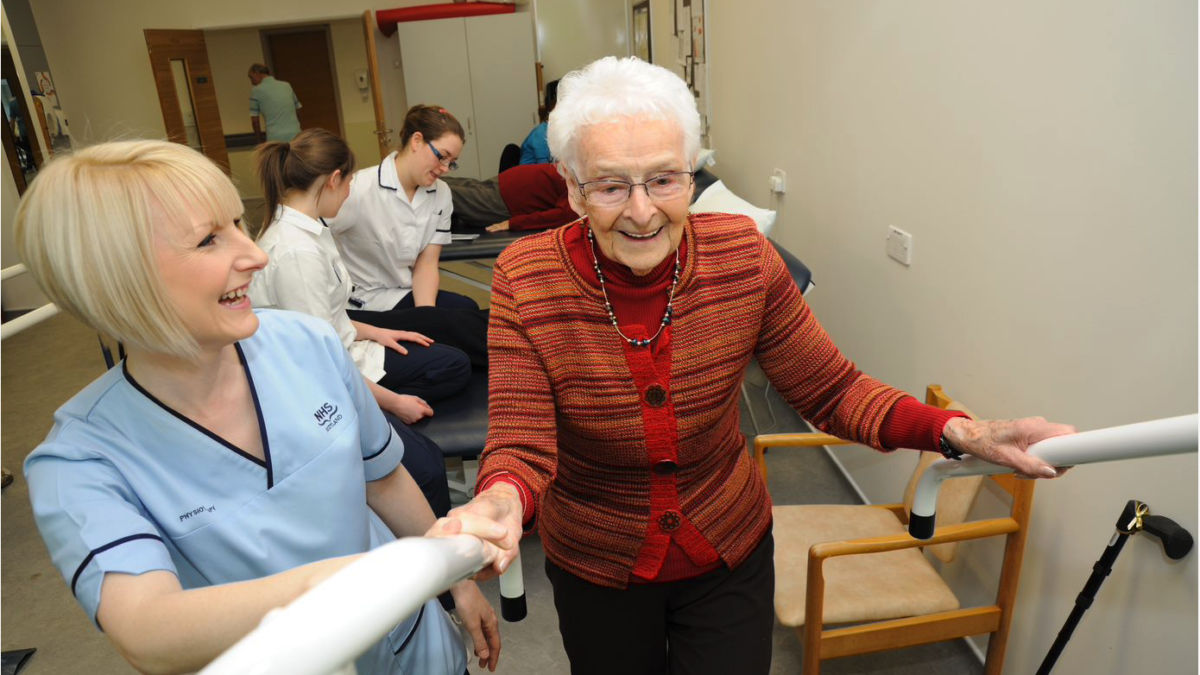With an ageing population, it’s little wonder that frailty presents some big challenges for the long-term sustainability of Scotland’s healthcare system. As people age, both physical and mental infirmities mean a complex range of care interventions are needed in residential settings and at home. And the demands are growing: over the last 35 years, the proportion of people aged 65 and over has increased to 20 per cent of the population and is expected to rise exponentially.
With national data also showing that five per cent of the population over 65 years of age are mildly frail, 15 per cent are moderately frail and five per cent severely frail, there is clearly a pressing need to ensure that people can be adequately looked after in the settings most appropriate for their needs.
Indeed, in the recent programme for government, some details emerged of how that might be achieved with a new Centre for Sustainable Delivery (CfSD), to be based at the NHS Golden Jubilee Hospital in Glasgow, which will look at how new medicines and technologies can be harnessed to support Scotland’s national efforts to remobilise, recover and redesign healthcare in a post-pandemic world.
Scottish Health Innovations Limited (SHIL) launched a frailty call at the end of August to encourage NHS Scotland professionals to come forward with ideas to develop and commercialise the sort of innovative products and services that will help realise those aims. Those could range from wearable tech that could predict falls in vulnerable people, assistive technology to make daily life or a specific task easier, a device or tool to help people self-manage their condition or diagnostic devices to simplify home monitoring of conditions.
The ideas may also be ‘simple or complex’ and come from any NHS health board and any role or medical discipline. In return, a dedicated package of innovation support will be offered by SHIL – which has supported more than 2,000 innovations since it was established by government and the NHS in 2002 – to accelerate the most promising innovations. That includes up to £25,000 of initial funding, regulatory support, project management and innovation expertise.
Graham Watson, executive chairman at SHIL, said: “We know there are major challenges ahead with an ageing population and Scotland’s future depends on true innovation. So, we are seeking fresh ideas from the professionals in the field who understand the challenges of looking after people with chronic health conditions.
“We have always had a terrific response from professionals in the past and some amazing ideas and innovations have been supported by SHIL and developed in Scotland.”
Although frailty is most commonly associated with older people, it is not defined by age, applying equally to younger people living with chronic conditions, such as asthma, across a range of disease and clinical specialities. It is also progressive over time, leading to low resilience to physical and emotional crisis and functional loss leading to gradual dependence on care.
Healthcare Improvement Scotland has begun to use a 1-9 electronic frailty scale, from very fit to very severely frail and terminally ill, developed by the Dalhousie University in Nova Scotia, Canada.
Dr Robert Rea, head of innovation at SHIL added: “Frailty was chosen as a focus for this latest innovation call following discussions with colleagues across NHS who were united in the view that frailty is an important issue – with huge scope for new ideas and innovations to be developed.
“It is very broad area – stroke, Chronic Obstructive Pulmonary Disorder (COPD), orthopaedics, ophthalmology – and importantly also applies to people, of all ages, living with long term chronic conditions. We have a solid record of developing ideas from within the NHS and had great response to our innovation calls last year.”
As well as health related problems, several social factors, such as social isolation and deprivation, can increase the likelihood of someone becoming frail. Some health professionals are responding to the challenge through the implementation of some practical measures on the frontline.
Dr Iain Morrison, a GP at Newbattle Practice in Midlothian, has deployed MidMed, a dedicated GP-led service for patients living at home with moderate or severe frailty, as per the Dalhousie Index.
He said: “Frailty is one of the greatest challenges the NHS in Scotland faces because of the changes to the national demographic. We all need to be thinking differently about how we respond to these challenges.
“This might be a change in service such as the MidMed project we have implemented; but it might be an idea for a medical device, educational tool or piece of technology that helps people live longer with age and more complex health conditions. It is encouraging to see health and social care professionals being supported to come forward with new and innovative ideas to support this growing population.”
There are also economic costs to frailty. Data analysis undertaken by Midlothian Health and Social Care Partnership shows a range of resource impacts, from unplanned hospital bed days to medication to GP contacts. The same analysis projected to the whole of Scotland shows the total cost of unplanned bed days for the frail population over 65 equates to £1.7 billion per year.
Dr Rea added: “Our work at SHIL focuses on health, economic and social benefit. We are seeking ideas to help transform the quality of people’s lives; but also help NHS Scotland adapt to a changing demographic and increase in service use as people become frailer. If individuals are targeted with evidence-based interventions that can help manage frailty, or reverse it, this may reduce the likelihood that they will need to access unplanned services due to a crisis, which, in turn, reduces the use of expensive, unscheduled care.”
Case study: Olivia Fulton


Providing a route for NHS-initiated ideas is welcomed by chronic asthma patient, Olivia Fulton who was forced to give up a promising career in nursing and a love of sports when her condition became too difficult to manage. Life for Olivia changed after a bout of pneumonia scarred her lungs during a gap year in Canada when she was 18. Her battle with asthma has been a struggle ever since. “I feel asthma is often over-looked as a chronic long term health condition – even though it kills three people a day in the UK,” she says. “I am delighted that SHIL has launched this call because asthma has massively affected my quality of life. All options to improve the quality of life of those living with debilitating conditions is needed and as a nurse myself I understand the knowledge and expertise that exists within the NHS. It is reassuring to see a route for ideas from within the health service to be taken forward.”
The SHIL innovation call is open until 22 October. Full details at www.shil.co.uk/frailty






